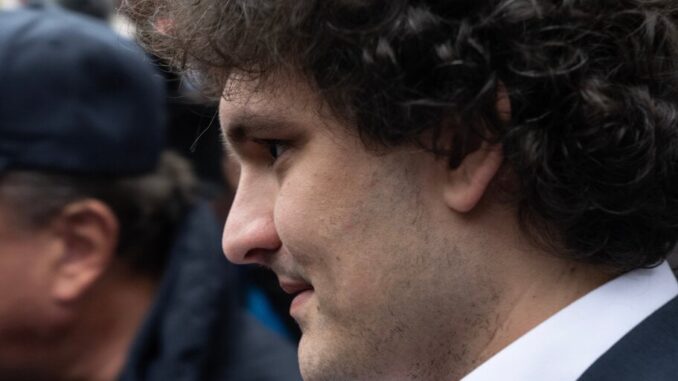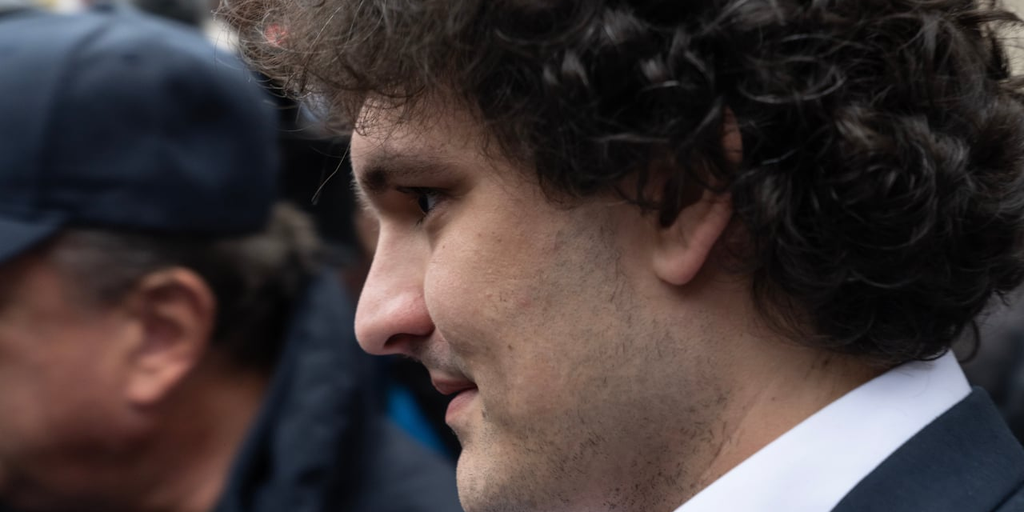
[ad_1]

FTX former general counsel, Can Sun, testified on Thursday that Sam Bankman-Fried asked him to craft “legal justifications” to explain why billions of dollars of customer funds were missing, as the exchange struggled to process customer withdrawals last November.
As FTX melted down, Bankman-Fried thought the exchange could raise money from investment fund Apollo to stay afloat and satisfy customers rushing for the exit. The catch: Apollo wanted to know how a $7 billion shortfall could exist at the once popular exchange.
There were no legal justifications that were supported by the facts, Sun said he told Bankman-Fried as they strolled through The Albany—a luxury resort in the Bahamas that housed FTX’s headquarters—during a one-to-one chat.
“Yup, yup,” Sun recalled Bankman-Fried saying as he acknowledged several possible explanations that didn’t hold up. “Got it.”
It wouldn’t be viable to say that billions of funds were taken from dormant customer accounts, Sun explained. And the exchange’s terms of service, which Sun helped update earlier that year, explicitly stated the exchange couldn’t touch customer assets.
Sun joined the firm in August of 2021, and he was supervised by Bankman-Fried and Dan Friedberg, FTX’s former chief compliance officer. Earlier this year, FTX sued Friedberg under its new management, alleging that Friedberg aided in fraud as Bankman-Fried’s “fixer.”
The only exception, at least in writing, was for customers who enrolled in spot margin trading on the exchange. In that scenario, collateral posted by customers to take positions could be used by FTX, Sun said. Still, the facts didn’t support a multi-billion dollar hole in Bankman-Fried’s exchange, the lawyer recounted in court.
Throughout the conversation, Sun said Bankman-Fried didn’t seem surprised and his responses came across as muted. Before their walk, Sun said his then-boss’s demeanor—as he typed on a laptop and took calls—contrasted with other employees present at the Bahamian resort.
Sun said the disparity was especially noticeable when it came to Nishad Singh, FTX’s former head of engineering and an alleged co-conspirator in Bankman-Fried’s case.
“It looked like his soul had been pulled away from him,” Sun said, adding that Singh appeared “pale” and “gray.”
Later that November night, Sun said Nishad detailed to him how customer funds could be plucked from FTX accounts through Bankman-Fried’s trading firm, Alameda Research. FTX’s former general counsel said he resigned the next day.
Sun said that he was “shocked” to learn in August, months before, that Alameda’s trading positions couldn’t be liquidated on FTX. At the time, Sun said he had no idea that it was a pivotal component of Alameda’s alleged ability to raid customer accounts.
Earlier in Bankman-Fried’s criminal trial, FTX co-founder and alleged co-conspirator Gary Wang said that allowing Alameda’s trading accounts to go negative and not be liquidated contributed to Alameda’s abilities to make “unlimited withdrawals” from FTX.
After pushing for a so-called “delayed liquidation” to apply to Alameda’s positions, Sun said he “completed everything on the legal front for that” to be implemented, yet it got hung up on the business side of things at FTX.
During his time as general counsel at FTX, Sun said he was involved in structuring several personal loans made to FTX insiders. It was in the neighborhood of 30 to 40 transactions, he recalled, which added up to $2 billion worth of loans.
Sun said he received a loan from Alameda himself. He used his $2.3 million loan—part of a “management incentive” program—to purchase a home in the Bahamas and relocate to the country. During his stint at FTX, he also received $3.5 million in bonus pay, Sun said.
Meanwhile, Sun said he was under the impression that FTX customer funds were segregated from company cash, and customers would be able to make withdrawals if the exchange ever ran into solvency issues. Protecting customer funds was a core value at FTX, he said.
“I had no idea that customer funds were being misused,” Sun said. “Everything was unequivocally [that] FTX protects customer funds—100%.”
Edited by Stacy Elliott.
Stay on top of crypto news, get daily updates in your inbox.
[ad_2]
Source link




